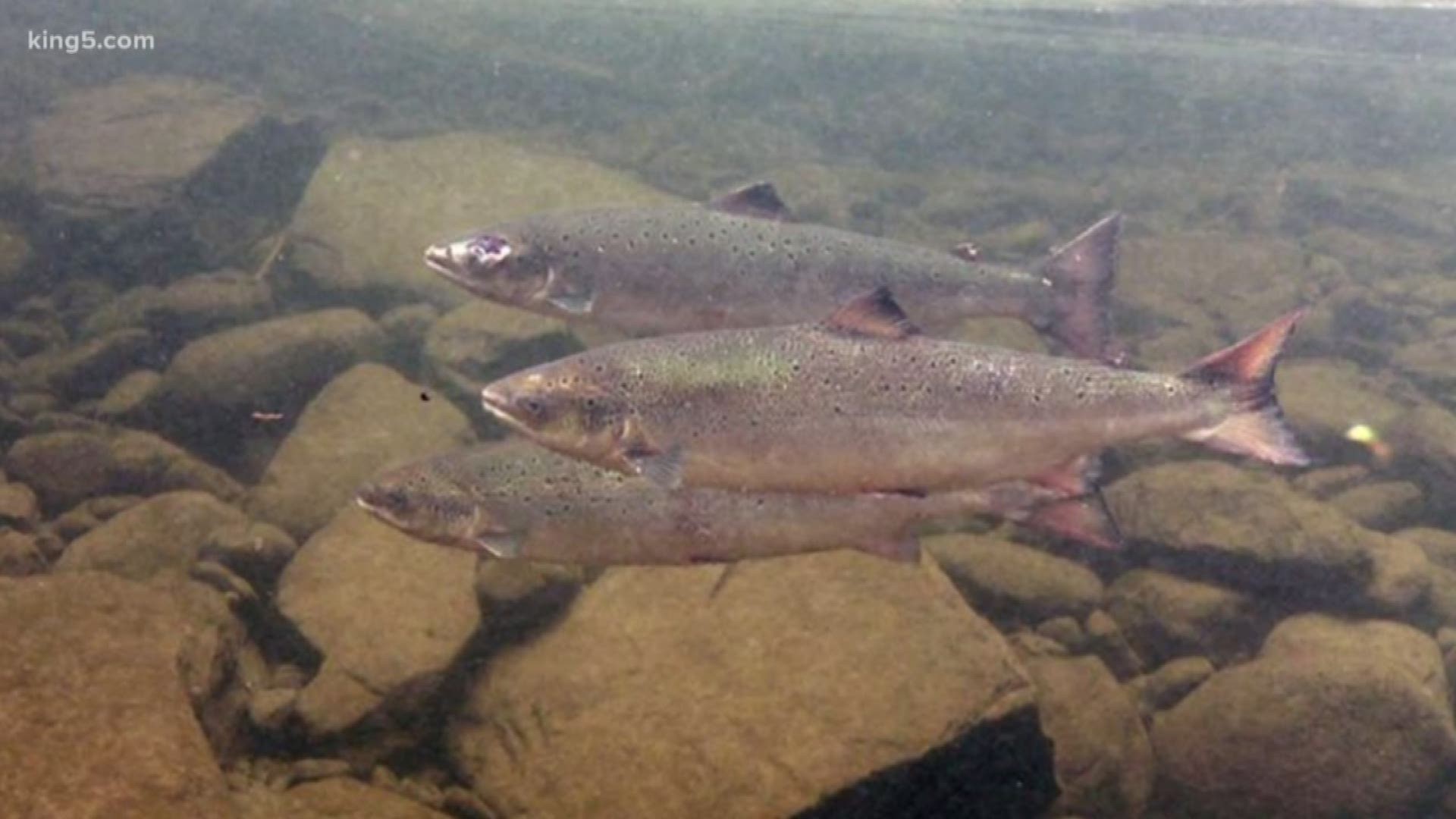SEATTLE — The World Salmon Forum convened in downtown Seattle this week, bringing experts from both the Pacific and Atlantic coasts.
"I think we all share a really, really serious and major problem," said Atlantic Salmon Trust Research Director Ken Whelan. "The problem is that Atlantic salmon and Pacific salmon at sea are having a really rough time. It's the speed at which it is happening that has us all very concerned."
Whelan traveled from Scotland for the convention. He's studied Atlantic salmon for more than 40 years and said this is the second conference of its kind he's seen.
"One of the things that we are coming to grips with is that whatever we have been doing for the last 20, 30 or 40 years does not seem to be working," said evolutionary ecologist Kyle Young.
Young studies the effects of hatchery fish. Washington Governor Jay Inslee's budget recently allocated $1.1 billion for increased hatchery production to feed the endangered Southern Resident killer whales.
"Hatcheries are neither good or bad intrinsically, but one of the things hatcheries do is they, to some degree, blunt the public's perception of the number of wild fish that are out there," Young said. "Because we still have open fishing seasons and there are still fish in the supermarkets, there is probably not the sense of urgency among the public at large concerning the number of wild fish that we have remaining in the Pacific Northwest."
One of the toughest challenges facing salmon is warming surface water in the oceans where they grow, perhaps making them more susceptible to predation or disease, Whelan said.
"Since 1991, 16 distinctive wild salmon populations have been listed as threatened or endangered under the Federal Endangered Species Act in Washington State alone," said Jim Lichatowich, a WSF scientific adviser and fisheries biologist with 47 years of experience. "Despite billions of federal dollars having been spent for wild salmon recovery on the Columbia River over the past 25 years, the wild salmon stocks continue to decline."
Whelan said a 10 million Atlantic salmon count has dropped to 3 million in 30 years. He called it a sign -- not just of salmon health but the overall health of our oceans.
"It is not just the salmon per se. They are actually the aquatic canary. They are telling us well in advance what is changing in our environment," Whelan said.

